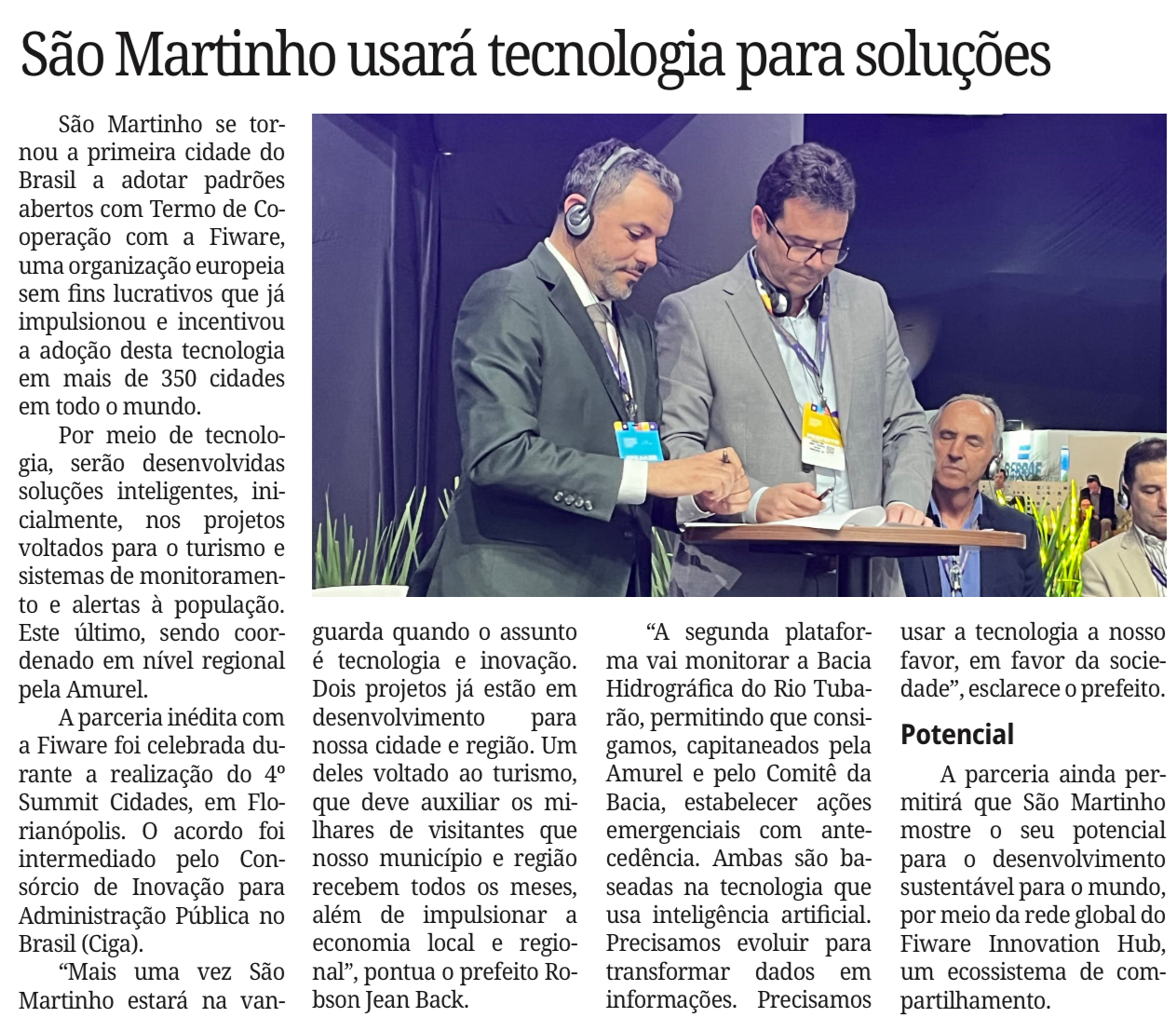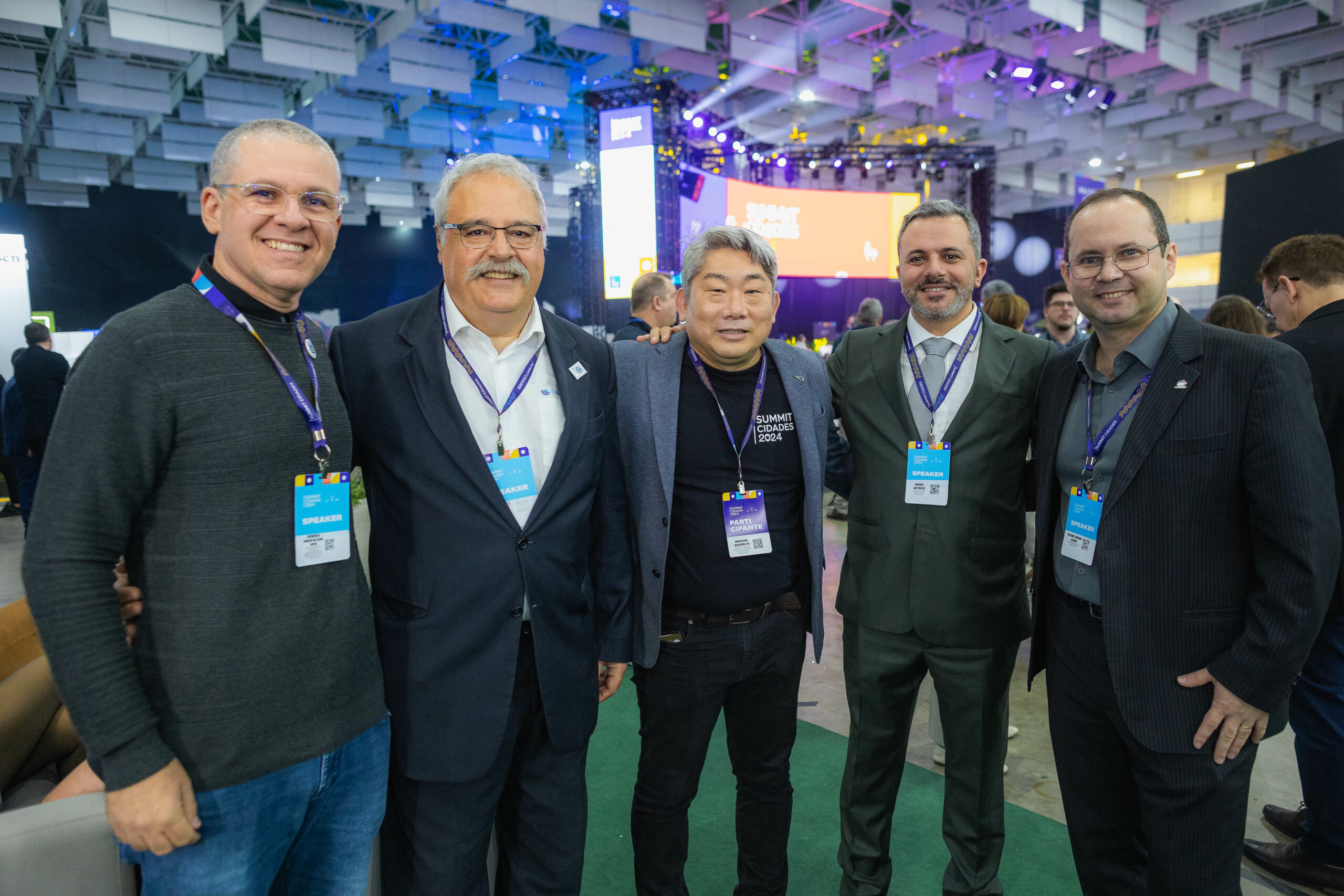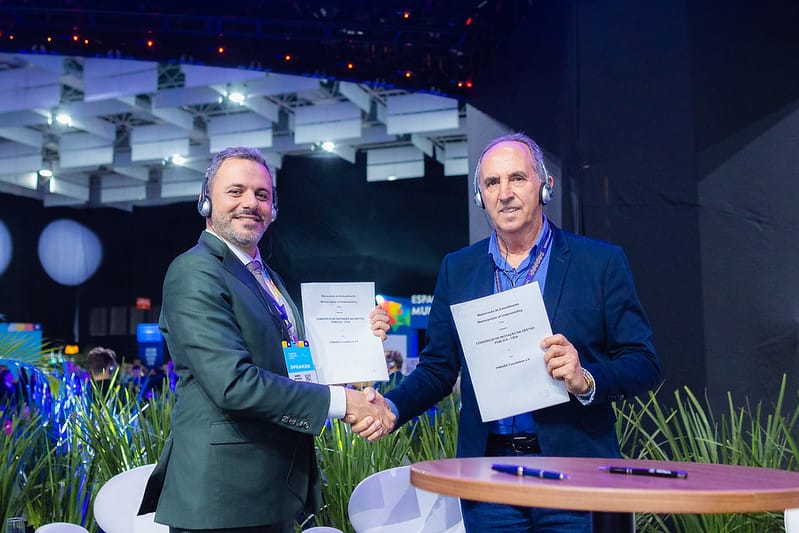Participating in Summit Cidades 2024 in Florianópolis, Brazil, offered a profound opportunity to engage with the vibrant leaders, policymakers, and innovators shaping the future of smart cities. Brazil’s ambition is clear: to become a global leader in innovation and technology. However, for Brazil to fully leverage its immense potential, we must address some foundational elements—chiefly, a more open economy, the adoption of open-source interoperability standards, and a deeper level of cooperation between public and private sectors.
Here, I’d like to delve into these elements that I see as crucial for Brazil’s technological and economic evolution, alongside expressing heartfelt thanks to the incredible individuals who made this journey both impactful and memorable.
Opening Up Brazil’s Economy to Global Markets
Brazil’s economy ranks among the world’s largest, with its rich natural resources, dynamic industries, and a population eager for innovation. However, the country’s relatively closed market structure remains a critical barrier to realizing its full potential in the digital age. Isolation from global markets means Brazilian companies often lack the access to cutting-edge technologies, practices, and international collaborations that could spur growth and competitiveness.
As a CEO, I see immense potential in Brazil’s economy, but this potential can only be unleashed through meaningful integration into the global market. This step isn’t merely a matter of policy adjustment; it’s an opportunity for Brazilian enterprises to compete on a global scale, to learn from international peers, and to forge partnerships that will bring innovation, resources, and ideas to Brazilian shores. Opening the economy would encourage not only new investments but also foster a spirit of entrepreneurship and global-mindedness that will benefit the entire nation. Summit Cidades underscored this need with discussions around trade policies, foreign investment strategies, and steps to remove bureaucratic hurdles. As leaders in the digital domain, we must advocate for such measures that will unlock this wealth of opportunity for Brazilian businesses.
The Compulsory Adoption of Open-Source Interoperability Standards
To develop new solutions and take them to market, we need interoperability—a fundamental principle that enables systems to work together seamlessly. At Summit Cidades, it became abundantly clear that open-source interoperability standards are the bedrock for fostering an ecosystem that can support innovation at scale. When we work within closed, proprietary systems, we constrain the possibilities for growth and expansion. Open standards remove these barriers, ensuring that any solution, no matter where it originates, can be adapted, scaled, and improved upon in diverse environments.
Interoperability is particularly critical for smart city initiatives, where various systems—ranging from transportation and energy to healthcare and public safety—must operate in unison to provide cohesive, efficient services. Open standards empower developers and innovators to build solutions that integrate smoothly with existing systems, accelerating the pace at which new ideas can become market-ready. They also facilitate international collaboration, as technology built to a universal standard is easier to adopt, customize, and improve upon.
In my view, the adoption of these standards is compulsory, not optional, for Brazil’s journey toward digital transformation. Without it, we risk creating isolated solutions that may serve short-term needs but lack the scalability and longevity needed for long-term success.

Fostering Cooperation between the Private Sector: A Key to Success
Brazil has a strong foundation of private sector entities, including notable associations like the ACATE consortium and the CIGA association, which are working tirelessly to bring innovation to Brazilian industries. At Summit Cidades, the importance of collaboration between these groups became even more apparent. True digital transformation can only be achieved when stakeholders across the public and private sectors unite toward a shared vision of customer-centric solutions. The needs of customers—whether they are citizens of smart cities or clients of private enterprises—should be the north star guiding all digital transformation efforts.
The ACATE consortium and CIGA association are excellent examples of what is possible when the private sector joins forces. Their contributions toward advancing technology in ways that are both cost-effective and beneficial to society at large are commendable. By fostering closer collaboration between technology providers, city governments, and industry associations, we create a ripple effect of value. Costs are reduced through shared resources, insights are expanded through collective knowledge, and customer satisfaction is elevated by the comprehensive solutions that only multi-stakeholder cooperation can deliver.
It is clear that fostering such partnerships will not only accelerate the go-to-market journey for new solutions but also drive down the costs that are inherent to any large-scale transformation. In a country where digital transformation is no longer a choice but a necessity, these cooperative efforts are fundamental to achieving sustainable progress.
A Heartfelt Thanks
Lastly, I would be remiss not to acknowledge the remarkable people who made my experience in Florianópolis memorable. My friend Gilsony Lunardi and his entourage extended an incredibly warm welcome, ensuring that my visit was both productive and enjoyable. Their hospitality and dedication to the event were a testament to the spirit of camaraderie that defines Brazil’s vibrant professional community. I also want to thank everyone else who took the time to meet, discuss, and share insights. The people of Florianópolis, with their openness and enthusiasm for positive change, made Summit Cidades a truly transformative experience.

A Vision for Brazil’s Digital Future
Summit Cidades 2024 was a testament to Brazil’s readiness to embrace a new era of digital transformation. By opening up to global markets, adopting open-source interoperability standards, and fostering a spirit of collaboration, Brazil has the potential to become a leader in the global smart city movement. The groundwork is already being laid, with initiatives like those in Florianopolis providing a roadmap for others to follow.
As I reflect on my experience at the summit, I am filled with optimism for what lies ahead. Brazil’s journey is just beginning, and with the right strategies and partnerships, it can unlock its true potential and make a lasting impact on the global stage. It was an honor to contribute to this vision at Summit Cidades 2024, and I look forward to continuing this important work alongside my friends and colleagues in Brazil.
